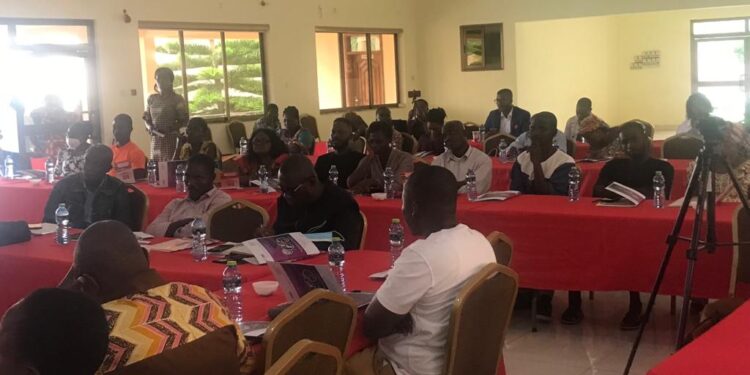The Development Bank Ghana (DBG), partnering with the Ghana National Chamber of Commerce and Industry (GNCCI), has ended the first phase of a capacity-building workshop targeted at 1,000 SMEs throughout the country in Cape Coast.
This initiative forms part of DBG’s commitment to equipping small and medium enterprises (SMEs) with the necessary expertise to reduce the risks in their operations that make it difficult for them to access funding.
The Chief Executive Officer of the GNCCI, Mr. Mark Badu-Aboagye speaking to ATL FM NEWS on the sidelines of a business skills development programme for SMEs in Cape Coast said the programmes were aimed at empowering the SMEs to scale up their business operations and de-risk them to access long-term capital.
According to him, although the GNCCI has been educating its members to brace themselves for a difficult year due to the COVID and also the rapid depreciation of the cedi against the dollar, certain measures must be put in place for SMEs to survive.
On collaboration with Development Bank Ghana (DBG), he said about 70 percent of the loans given by the commercial banks are short-term and do not help businesses.
Hence, DBG has been partnered to offer members of the chamber medium to long-term loans, especially for those in the manufacturing sector.
“What businesses are doing now is to go short term to finance long term projects which is not good for any business because you will not be able to pay, but DBG has come in now to give us medium to a long term loan. That for me is going to help businesses and what we have to do is to support DBG to survive medium to long term so that businesses will get this facility.” He said.
The joint business skills development programme is under the theme “Empowering SMEs with the requisite business skills for sustainable growth and resilience”.
Mr. Badu-Aboagye said that there has to be coordination and a targeted approach between the government, the chamber as well as the business community.
He however noted that GNCCI has made a number of recommendations to government to be factored into the 2023 budget.
“We are aware of the syndicated loan that is coming up in October, we are also aware of the IMF facility is also coming up. They are all coming up to shore the foreign currency that we have to stabilize the cedi. We think that they should also do more. The monies that are coming should be used for their intended purposes so that we have an environment that will be conducive for businesses.
The participants who attended these workshops were taken through various business topics by experienced resource persons in risk management, environmental and social governance practices, market and market development strategies, financial management and how to access DBG Loans.
Read also: UCC inaugurates video conferencing facility, two others to enhance academic work
Source: Anthony Sasu Ayisadu/ATLFMNEWS


























